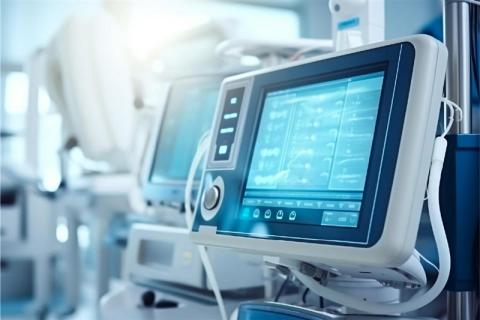
The implementation of the In Vitro Diagnostic Regulation (IVDR) 2017/746 on May 26, 2022, has resulted in heightened scrutiny and Regulatory supervision for In Vitro Diagnostics (IVDs) in the European Union (EU).
The evaluation of IVD performance primarily relies on demonstrating scientific validity, analytical performance, and clinical performance in accordance with Annex VIII. The IVDR lays out Regulatory requirements for performance studies in Article 57 to 77 and Annex XIII. The manufacturers must provide a comprehensive plan for conducting the performance studies in line with the EU IVDR standards. The study must assess the accuracy, sensitivity, specificity, positive and negative predictive values, and overall quality of the IVD products.
The requirements for performance studies should align with internationally recognized guidelines such as ISO 14155:2020, which covers Good Clinical Practices (GCPs) for medical device investigations involving human subjects. This alignment facilitates acceptance of performance study results conducted within the European Union (EU) as documentation outside the EU simplifies the acceptance of performance study results conducted outside the EU in accordance with international guidelines within the EU. Furthermore, the rules should also adhere to the latest edition of the World Medical Association Declaration of Helsinki, which outlines ethical principles for medical research involving human subjects.
The General Requirements that Apply to all the Performance Studies of IVD are -
- Device should comply with Annex I: General Safety and Performance Requirements (GSPR)
- Performance studies should be conducted under conditions that closely resemble the typical usage environment of the device.
- The performance studies should be carried out in such a way that the participant’s safety, dignity and well-being is protected and prevailed. Additionally, the data generated should be reliable, valid and robust.
Stakeholders Involved in the Performance Study Process -
- Sponsors: The sponsors are the entities responsible for initiating the performance study. It is important to note that the sponsor does not necessarily have to be a manufacturer or a European Authorized Representative (EAR).
- Subject: The subject is an individual who will be participating in the clinical study.
- Ethics Committee: The Ethics committee is an independent entity established in a Member State that is responsible for evaluating the investigations and ensuring that the sponsor is adhering to the ethical principles and safety standards set out in the regulation.
Essential Components Involved in Performance Study Application Submission Process –
- Technical File Preparation: During the primary submission of the performance evaluation, a technical document is prepared. This document includes comprehensive information such as the intended use, manufacturing process, etc. The entire purpose of this file is to give a clear and complete overview of the device, demonstrating its safety, performance, and compliance with the EU IVDR requirements.
- Performance Study Plan: When it comes to performance evaluation, performance study plans hold immense significance as a vital component. It is an integral part of the technical documentation, providing a comprehensive overview of the objectives, methodology, and study design for assessing the performance of the involved In Vitro Diagnostics (IVDs). It is crucial that the performance evaluation is rooted in scientific knowledge and considers applicable guidelines and standards, ensuring a robust and reliable assessment framework.
- Notified Body (NB) Selection: After finalizing the technical documentation, the manufacturer is required to choose an appropriate Notified Body (NB) from the European Commission's NANDO database, which contains the list of recognized NBs. The selection should ideally be based upon a few factors such as accreditation scope and expertise, ensuring their alignment with the specific category and intended use of the IVDs in question.
- Application Submission: The manufacturer/sponsor is then required to submit the application for performance study, along with the technical documentation, to the chosen NB. The application should clearly outline the device's intended purpose, classification, and the specific conformity assessment procedure being sought. It is essential to provide accurate and complete information to facilitate a smooth and efficient evaluation process.
Below mentioned are a list of few documents that need to be submitted (wherever applicable)–
- Cover Letter
- Application Form
- Clinical Performance Study Plan
- Performance Evaluation Plan
- Product Information
- Information Research Subjects
- Participating Centers
- Financial Compensations
- Curriculum Vitae (CV)
- Post-submission: Following the submission, the NB reviews the application and evaluates its compliance with the IVDR requirements with respect to the performance study. The evaluation process may involve requests for additional information or clarifications from the manufacturer to ensure a comprehensive assessment. Upon reviewing, following conclusions are provided to the manufacturer: -
- Acknowledgement of Receipt: If the performance studies are notified through the "notification only" Regulatory pathway and the technical file is deemed complete, and an acknowledgment of receipt letter will be provided. This signifies that the performance study can commence.
- Rejected: If the performance study does not align with the scope of the IVDR, the technical file is incomplete, or the response to validation questions is not received within legal deadlines, the notification or application will be rejected after validation. The applicant receives a concise explanation of the reasons for rejection. In such cases, the performance study cannot commence. However, the rejected (completed or amended) dossier can be resubmitted any time.
- Authorized: The performance study can commence immediately.
- Authorized with Recommendation/s: It means that while the performance study can commence promptly, it is advisable to duly consider the provided recommendation(s).
- Authorized Subject to Condition/s: This term indicates that the performance study can be commenced after the conditions provided by the NB are met. These are generally in reference to availability or modification in the document. In this case, the approval letter is sent with the conditional letter only.
- Refused: The initiation of the clinical performance study is not permitted. The applicant will receive a concise explanation outlining the reasons for the refusal of the application. If the application is refused, there is an option to resubmit the dossier.
Performance studies play a crucial role in ensuring the accuracy and quality of IVD products. It is important for manufacturers and sponsors to carefully adhere to the requirements and guidelines to ensure successful performance study applications under the EU IVDR 2017/746.
Do you require assistance in navigating the performance study pathway for your IVDs? Schedule a call with us today. Our Regulatory experts will guide you through the process and ensure your IVDs compliance with the EU IVDR 2017/746 regulation. Stay informed. Stay compliant.









